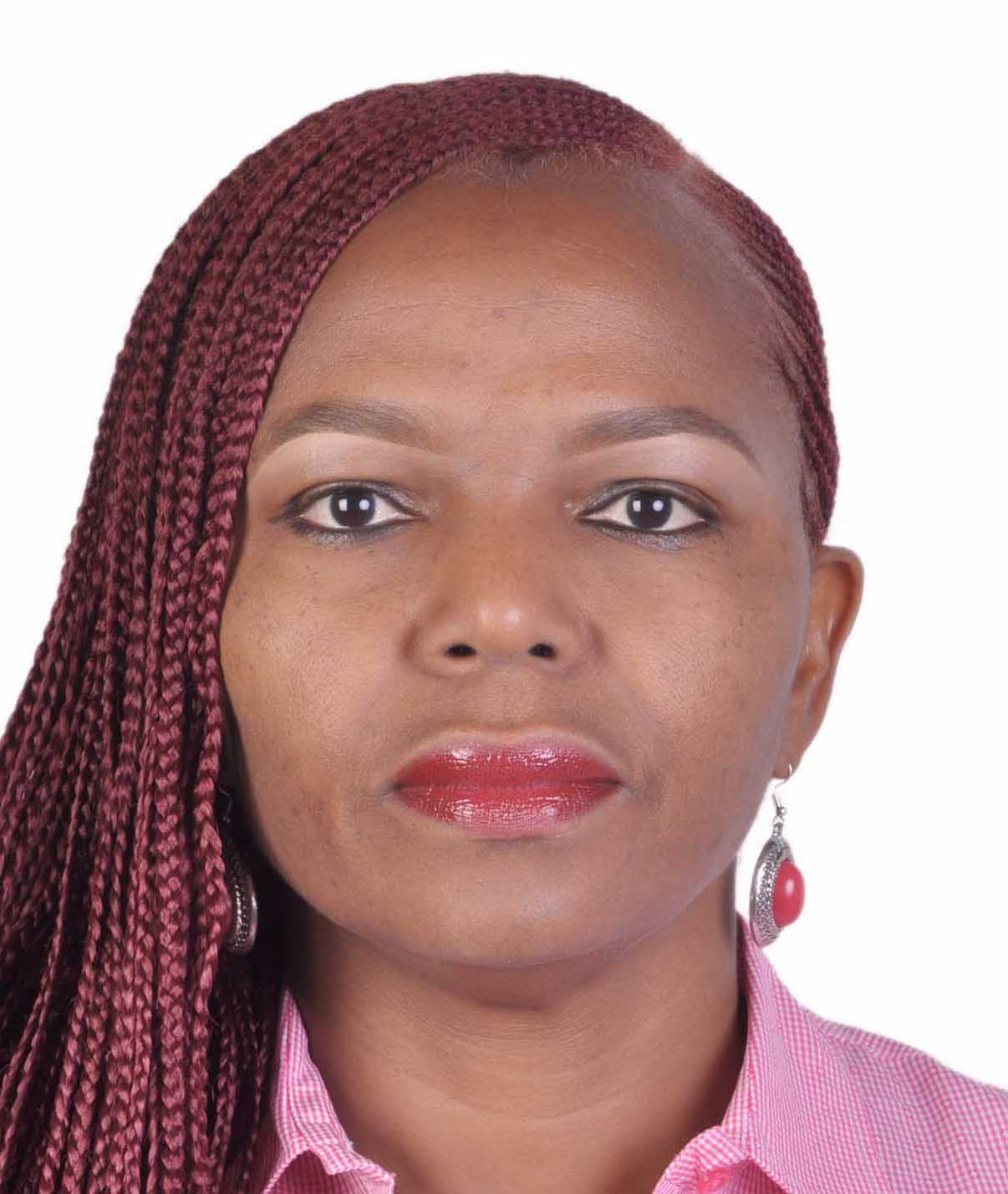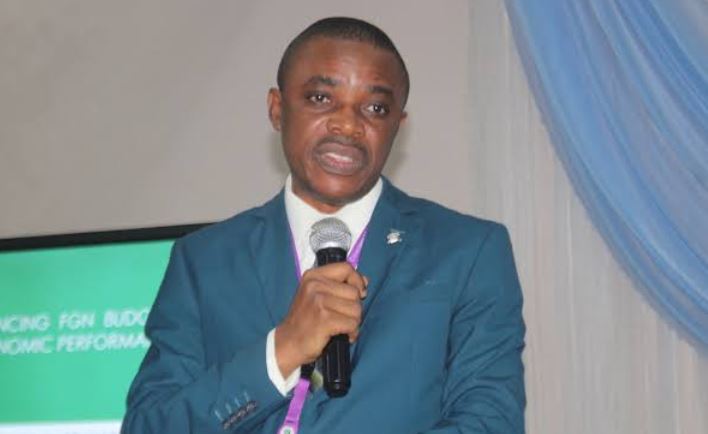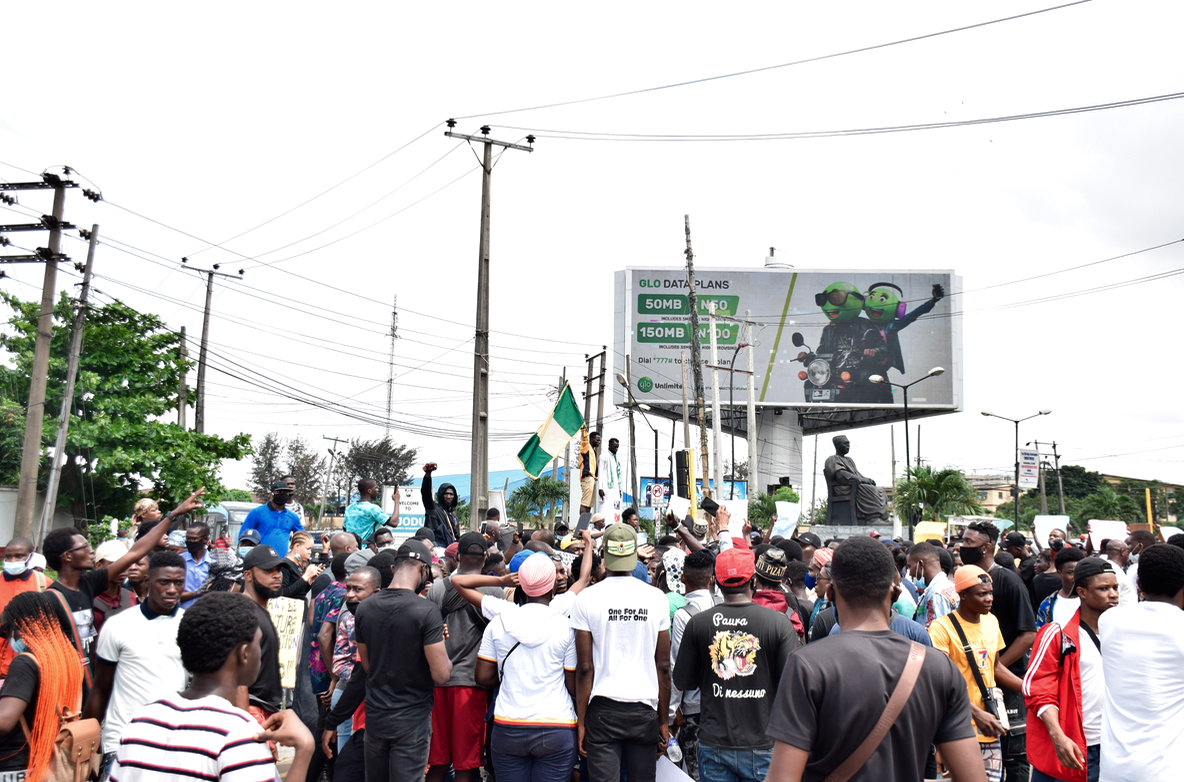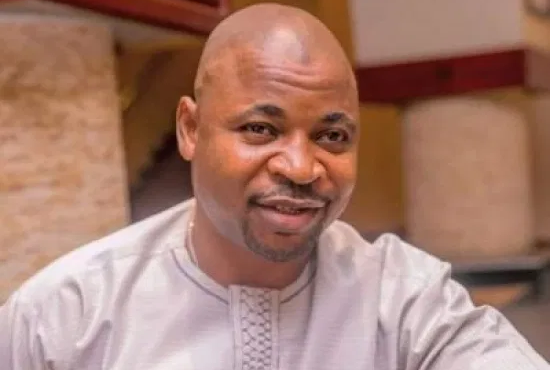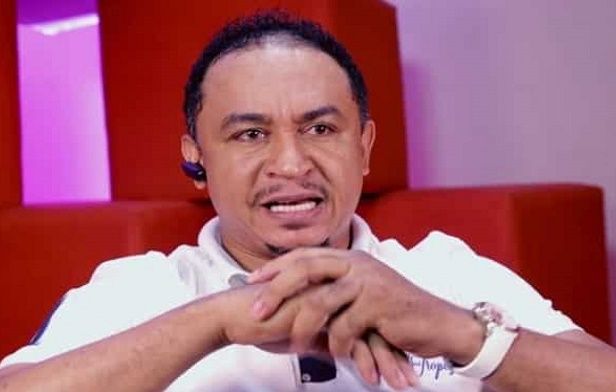‘The revolution will not be televised’ is a phrase made popular during the Black Power movement in the 60s. In the context of Nigeria, if you’ve been paying attention (I can’t imagine how you wouldn’t have been) you’d notice that something like a revolution seems to be taking shape with the ongoing protests against SARS (Special Anti-Robbery Squad) by young people. Tagged #EndSARS, the sheer force of these protests, even without identifiable ring leaders have generated strong reaction and gathered support from around the world so much so that Nigeria is trending on the world stage.
In turn, the protests have forced a response from the leadership of the Nigerian government and the police leading to all kinds of promises, hoping to see the protests called off. But in the short term, SARS has been disbanded. This particular move wasn’t so ingenious because there’s enough evidence to show that SARS like an abiku child has been disbanded by government and ‘died’ every year since 2018 (According to Yoruba culture, abiku children die young and their spirits return to the same mother, again and again). It’s become a yearly ritual to announce the disbandment of SARS or an order for SARS to be disbanded.
Nonetheless, government moving at uncharacteristic speed has also announced the replacement of SARS with SWAT (Special Weapons and Tactics). At this rate, Nigeria may soon change its name to the United States of America. Appear to be more concerned about acronyms that already exist in other countries. Many Nigerians are not impressed, definitely not the youth who are protesting as #End SWAT now appears to be gathering steam. Why the hurry to rename SARS?
However, I’m interested in taking a look at how the EndSARS protests have played out in the Nigerian media, specifically Television. Even though, my focus is on TV, some of my observations will serve for the media in general. Had the protests depended only on local TV stations, all their noise would’ve been like a tree that fell in the forest. This is because of the initial loud silence and deliberate blackout from local media. In fact, some were more interested in reporting the ‘other side.’ The social media was full of people complaining that award-winning stations like Channels TV were not reporting the protests.
Advertisement
Why did major Nigerian TV stations choose to initially ignore the EndSARS protests? Why did it take international TV channels like CNN, Aljazeera, BBC and others to wake their local counterparts up? There are a few possible reasons which are by no means exhaustive. Do feel free to send in your own reasons.
The Power of Social Media & the Internet
As earlier mentioned, in the early days of the EndSARS protests, there were complaints over the loud silence from major Nigerian TV stations concerning the EndSARS protests. Of course, as you know, the list of major TV stations doesn’t include the government owned NTA. As far as the guys at NTA are concerned, even though it’s funded by taxpayers, their main objective is to not offend the government of the day. In their reasoning, ordinary Nigerians are on the other side.
Nonetheless, in spite of the initial blackout from local media, things picked up and gathered steam when international media and celebrities got involved and #EndSARS began to trend across the world. It was the who’s who around the world. From the likes of American musician Trey Songz to British footballer Rio Ferdinand. They all spoke against SARS. American rapper Kanye tweeted “I stand with my Nigerian brothers and sisters to end police brutality, the government must answer to the peoples cries #EndPoliceBrutalityinNigeria.”
Advertisement
Star Wars actor, John Boyega also tweeted: “The youth in Nigeria deserve good leadership and guidance. This situation is tied to many other issues. Please lend your attention to this pressing problem! #EndSARSImmediately. #EndSarsProtests #EndSARS #EndSARSProtest.’
Men of God were not left out: Kirk Franklin tweeted: “For over 20 years, Nigeria has stood with me, now I stand with you🏾. #endsarsnow. T.D Jakes who said he’s traced his ancestry to Nigeria had this to say: “Injustice anywhere is a threat to justice everywhere… Whatever affects one directly, affects all indirectly.” – Dr. Martin Luther King, Jr. #EndSARS.’
There’s actually a very long list. The short of it is that once the whole world was listening and talking about Nigeria, local media perhaps felt it was safe to join in. With the power of the social media and the internet which has been proven once again, Nigerian media/TV stations may not realise there’s a revolution until it’s too late. In any case, the average Nigerian TV viewer trusts information from international media more than local sources. And who needs local TV stations when you have the whole world at your fingertips?
Nigerian TV Stations Lack Imagination
There’s no sugar coating this, Nigerian TV stations/media lack imagination. With the exception of the first reason, all other reasons are within the control of TV stations and almost if not of all of those reasons can be attributed to a certain lack of imagination. This point can’t be overemphasised. Yes, we all know things are difficult in Nigeria and survival is tough. How can you have imagination in the midst of such stress and struggle?
Advertisement
Still, TV stations, even individuals need imagination to effectively navigate Nigeria. In these parts, it’s not enough to be talented in just one area. You have be able to multi-task. The same goes for a TV station. It may be something as simple as their style of presentation. Or being first with whatever’s relevant to their target audience, after correctly identifying said target audience of course. It does help to be known for something. Right now, the station that claims to specialise in news has to depend on international media to report news in Nigeria. Why does everyone report from the same perspective anyway? Speaking of which, any TV station with imagination would’ve known to seize the opportunity presented by the EndSARS protests.
Wrong Interpretation of News
As I have had cause to ask in the past: What is news? Or what do we consider to be newsy? I’m not sure when it started but our TV stations seem to (now) prioritise government events and political office holders over other kinds of news. A typical news bulletin would begin with what the President did or how Governor X visited the Presidential villa. After that, we may hear about the First Lady, ministers and so on. Midway into the news, the viewer becomes bored, except if they have a stake in the news. How could Lagos be on fire, figuratively speaking, and international media are the first to beam their searchlight? What else do you need to report an event as newsy and epoch-making as the EndSARS protest?
Closely related to this is lack of adequate funding. How many TV stations can afford to send correspondents to different parts of Nigeria? Or to important events around the world? Even when they manage to send reporters, there are other challenges like them sending reports with no corresponding visuals. Now, it’s possible that with more imagination and creativity, TV stations could work around these challenges. It’s also possible that if only they could shift their focus on ‘big man’ news, they’d explore other ways to reach people. Whatever the case may be, Nigerians are not adequately informed about events around the country. Who is bringing us real news from the North East for instance? Is there a reliable news medium anyone can turn to and be sure to get up-to-date news about Nigeria?
Over monetization of programming
I used to wonder what qualified certain people to appear on TV. Or what qualified certain topics for discussion on the airwaves. Until I discovered money to be the secret. It doesn’t matter how important what you have to say is, or even if it can save lives. You have to pay. People pay even for those innocuous headlines that TV stations scroll underneath their TV screens. Aren’t there better ways to generate money you ask. Again, I suppose that’s where creativity and imagination can come in useful. I don’t claim to have all the answers but surely if TV stations in a country like Nigeria are only for the highest bidder, they’re not going to pay much attention to worthy causes like EndSARS protests.
Advertisement
Fear of Government
This is perhaps the most significant reason. Especially in these times when we seem to have a ‘demo-military’ rule. The people are supposed to have freedom of speech, right of assembly, and all those lofty democratic ideals. However, there are policies, actions (and inaction) which cause the cautious to fear government. This could be the fear of repercussion or persecution from government. There’s also fear of losing government patronage by way of adverts and other forms of financial patronage. Make no mistake, government is very powerful especially in a Third World country like Nigeria. To paraphrase former minister of information Alex Akinyele, ‘the government can do and undo, it can even make a person disappear. Lecturer and critic, Abubakar Idris Dadiyata has been missing since August 2019. He was reportedly taken from his home in the presence of his wife. No one has yet claimed responsibility.
With renewed interest in curbing Hate speech and Fake News, government can enforce a certain amount of pressure. A few months ago, government through the NBC (National Broadcasting Commission) announced amendments to the Broadcasting Code. The fine for hate speech was increased from N500k to N5m. The fear of (being fined for) hate speech is the beginning of wisdom. Nigeria Info 99.3 FM station learnt the hard way in August 2020 when it was fined N5m by the NBC. Obadiah Mailafia, a guest, had alleged that one of the Northern governors was commander of the terrorist group Boko Haram.
Advertisement
It’s not difficult to see how the Nigerian government can link TV stations to terrorism. Online banking service provider Flutterwave was allegedly summoned by the Central Bank of Nigeria, CBN over contributions for the EndSARS protests. In one week, over N25m had been donated. Somehow, terrorism was thrown in, the donation was deactivated, and government weight generally thrown around. Meanwhile, said CBN is AWOL as banks fleece customers under the guise of bogus maintenance fees.
If the fear of persecution by government is not strong enough, there’s the need for government patronage. It’s often said that government is the biggest patron in Nigeria. That patronage has only increased as the country sinks to become the world’s poverty capital. The cynical might see this as a deliberate design to keep the media perpetually servile. How then do TV stations survive without government patronage? Critical media organisations run the risk of ads being withheld. Can’t TV stations generate income through sources other than government?
Advertisement
What do you think of these reasons? Are they strong enough to stop TV stations from being dynamic and on the side of the people?
Nwabuikwu, AIRTIME columnist is a renowned TV/Film critic, and Film scholar. She also has experience in Advertising as a senior Copywriter and Corporate Communications as Communications consultant. Email: [email protected]
Advertisement
